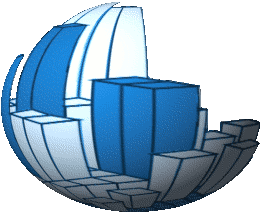Table of Contents
About Encyclosphere
Encyclopedias Networks
The encyclosphere is a universal network of encyclopedias<ref>The official web page of encyclosphere.org. https://encyclosphere.org/ (retrieved Dec 2020) that gives an equal voice in expressing knowledge, and in rating those expressions of knowledge. The encyclosphere is not an encyclopedia; rather, it is a network of encyclopedic content. The encyclosphere is to encyclopedias what the blogosphere is to blogs.
Images
Images can be included as shown below:
One can also show images with image captions:
 Fig. 1: This is a logo of EncycloED
Fig. 1: This is a logo of EncycloED
The Dokuwiki image can be seen in figure 1.
References
The encyclosphere article may have references. The standard style is to use “Harvard” styling for citations (Andrew Hunt; David Thomas, 1999, pp.352) or the usual style (Donald Knuth, Jan 1985) another example (Donald Knuth, 1997)
Encyclosphere has been brought into existence by the Knowledge Standards Foundation, which will facilitate the creation of the necessary standards. The encyclosphere was invented in response to problems.
Proposed concept
As it is planned, the encyclosphere will allow writers and publishers to post feeds of encyclopedia articles (or metadata about articles, and ratings of articles). App developers would be able to collect the data from all of those feeds and use the data to construct massive search engines, and other neat features, for all the encyclopedia articles in the world. No one app would be privileged, but all would tap into—and help build—a “knowledge commons.” Ultimately there would be a massive knowledge competition to best express human knowledge on every topic and from every point of view.
- Writers should be able to publish their own articles wherever and whenever they want, without asking anyone.
- Raters—the general public, including people identified as experts—should be able to rate those articles.
- The data for both articles and ratings are published according to standards, or a single common format, in a feed, similar to an RSS feed.
- Users should be able to sort and re-sort articles according to all ratings, or selected ratings.
- The control over whose ratings to pay attention to should always be in the hands of the user.
- The data is slurped up and aggregated into different databases, including distributed databases such as IPFS, and open APIs.
- Many competing apps, all around the world, use the aggregated data to build encyclopedia readers according to their own editorial standards. The Foundation’s technical standards will be completely neutral with regard to such editorial standards.
Equations
$$ F(x) = \int^a_b \frac{1}{3}x^3 $$
This equation is well known. We simply test MathML parsing.
Showing program code
One can also use code snippets in your articles. This is Java example:
without title (for python)
from math import * a=sqrt(100)
This code does not belong to any language:
if (!$lang) $lang = NULL;
or for files:
title
some text
